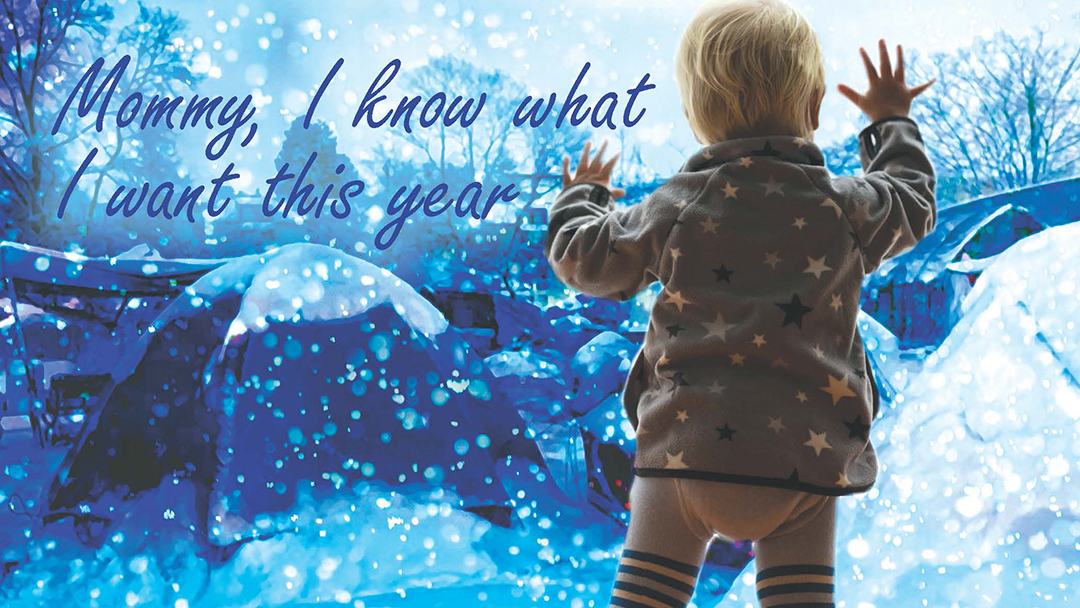It’s been a long year for most of us, but we’re finally entering the holiday season. Whether we’re thinking of Christmas, Hanukkah, Kwanzaa or just our need for a quiet break, our homes are the heart of winter celebrations. Warm shelter on a snowy day, the kindliness of community and family gatherings, the simple joy of sharing a communal meal are all things we look forward to.
You might have seen headlines about Montréal’s “tent city,” a community of roughly 100 unsheltered residents in the city’s Hochelaga-Maisonneuve neighbourhood. A similar scene is being played out across the country. As winter arrives, and biting cold nights come with it, Montréal last week doubled down on its efforts to shut down the encampment and asked people to leave voluntarily. The options offered to them: an east-end YMCA near the camp, or a downtown hotel converted into an overnight homeless shelter.
One from which they are expelled every morning.
This week, the soft pedal turned to hard knocks as police massed at 5 a.m. on Dec. 7 to expel the campers as garbage trucks stood by to cart unclaimed belongings to the dump. As Eve-Marie Lacasse of the Québec Ligue des droits et libertés commented, witnesses saw “hundreds of police officers, heavily armed; the cavalry has arrived; a security cordon to close off the area; photos forbidden unless you have a press card…” Is this our response to the housing crisis?
Although a few of the campers had earlier taken up the offer of temporary lodgings, many want something that most take for granted: a place to feel safe to live, dream, eat and gather under your own roof. But many are willing to face off against a bitter winter rather than settle for anything less.
An emergency shelter is like an ambulance. A good health care system has ambulance service, but an ambulance service doesn’t make a good health care system.
– Stéphan Corriveau, Centre executive director
“Fighting homelessness comes through building houses,” Stéphan Corriveau, the Centre’s executive director, reminds us. “Emergency services are not a long-term solution. An emergency shelter is like an ambulance. A good health care system has ambulance service, but an ambulance service doesn’t make a good health care system, so, the answer to homelessness can’t be more shelters.”
Being unsheltered is not a disease, it is a symptom of a much wider, much deeper problem that won’t be cured with flop houses, no matter how well intended. There are few human needs more fundamental than food, shelter and community. If we forget the community, then we are not creating homes, we are creating isolation cells.
In that spirit of community, despite the tremendous work ahead of the Centre and our partners, it’s important to celebrate our collective wins in 2020:
- The federal government set aside $1.1 billion for the construction of 3,000 social housing units by 2022 under the Rapid Housing Initiative.
- The city of Vancouver approved a $1-billion plan to acquire 105 Single-Room-Occupancy (SRO) hotels in the Downtown-Eastside.
- Ottawa named the first-ever National Housing Council, which will include Tim Ross, president of the Centre’s board, and several key housing advocates, including council co-chair Tim Richter of the Canadian Alliance to End Homelessness.
- The Centre has distributed more than $6.9 million to 106 projects in 2020, as we work together to build a stronger housing community through education, information-sharing and collective action.
For most of us working in community housing, it is a good time to recognize the importance of the work we do. None of us know what curve balls 2021 will throw, but if last year is any indication, the community housing sector will adapt and rise to the challenge. And perhaps this is what we might want to reflect on this season, being grateful for our growth and our collective victories in these hard times, but ever mindful of the long road ahead and hopeful that we will make the march together.



